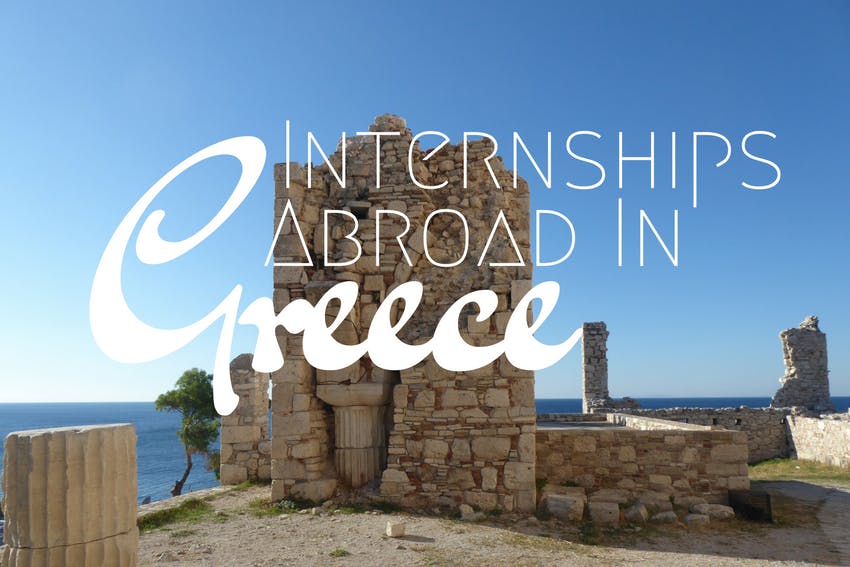
Intern in Greece with Intern Abroad HQ! Programs are available from four weeks in a range of diverse fields. Regardless of where your strengths and talents lie, if you’ve always wanted to make a meaningful contribution to conservation efforts, this is the opportunity of a lifetime!
Multi-disciplinary teams work year-round to research and defend the biodiversity of the Greek Seas. No matter what your skillset is – whether you’re a filmmaker or scientist, tech superstar or social media whizz – you can gain invaluable practical experience.
We got together with our local team in Greece to address some FAQs and provide further insight and guidance for internships. Here’s the inside scoop!
- What can you tell us about the internship location in Greece?
- Why are the conservation efforts and internships in this region so important?
- What makes this internship program in Greece such a great choice for college students?
- Can you provide some specific examples of internship activities?
- Can interns get involved in other activities outside of their chosen internship field?
- Describe the team in Greece and what makes it so special.
- What items should definitely be on a person’s “pack list” for an internship in Greece?
- How can interns spend their weekends in Samos and what activities are a “must do”?
- What is the accommodation like for interns?
- Sign me up! How can I start planning my internship in Greece?
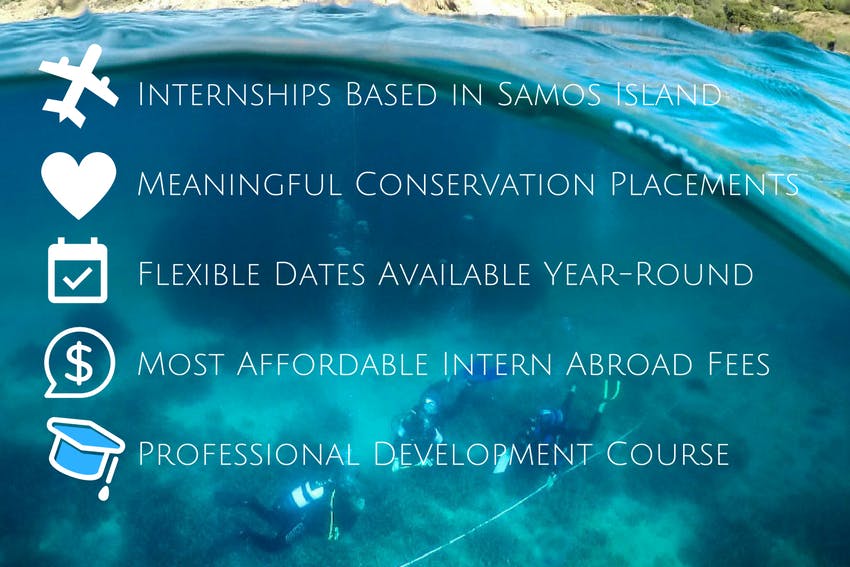
1. What can you tell us about the internship location in Greece?
Internship placements in Greece are based in Samos Island, close to the small town of Pythagorio. Activities take place around Samos and some surrounding islands of the Eastern Aegean Sea. The main research base is conveniently located directly on the sea front, just a short drive (in a staff minivan) from the marina, from where the boats take the Marine teams out into the Aegean for regular surveys. There are several ways of reaching Samos Island and your travel path will probably be in influenced depending on where you’re coming from. Interns may fly into Samos from Athens or Thessaloniki, or even take a ferry.

2. Why are the conservation efforts and internships in this region so important?
Samos Island is one of the final havens of biodiversity in the Mediterranean. Hundreds of species of birds, mammals and reptiles (including rare or endangered species), can be found in this region of Greece. Samos Island hosts the only populations of golden jackals in Greece, as well as the elusive Mediterranean chameleons. Interns who join the Terrestrial Conservation internship program can expect to join activities related to these species, such as conducting surveys to determine population size and distribution, and assessment of seasonal variation of habitats.
Regarding the marine territory around the island of Samos, the Aegean Sea – where interns help to carry out our conservation work – is one of the most biodiverse regions in the entire Mediterranean. The Mediterranean Sea represents only 0.8% of the oceans worldwide but it supports 7% of the all existing marine species! Despite this, there are few protection or conservation measures are in place.
Within this special region, we also have a research base on another island (near Samos). We are working there with the aim to develop a sanctuary where marine mammals can be rehabilitated in conditions that are as natural to the wild as possible. Scientists, veterinarians, and internship students (within the scope of the Marine Mammals & Sea Turtle Conservation internship program) gain the opportunity to help with this incredibly unique program.
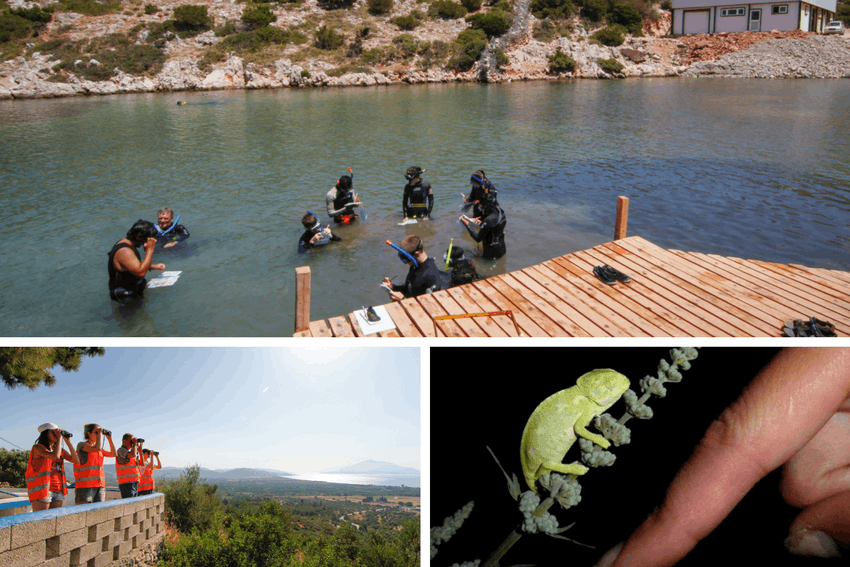
3. What makes this internship program in Greece such a great choice for college students?
We bring together the expertise and knowledge of the scientific conservation community from all around the world. There are awesome professional networking and mentoring opportunities and students have the freedom to choose the field they’re most passionate about, and acquire multi- disciplinary practical experience. We have no shortage of internship opportunities and the activities are incredibly diverse. From mapping seagrass and coral reefs, to combating the illegal trade of endangered species… from analysing water and soil quality to studying the behaviour of marine mammals… from stranding response teams to website I.T… from researching traditional agricultural farming practices to enforcing the protection of ancient trees… Even if you’re a photographer or film-maker, we have great project opportunities that will allow you to apply your skills to really meaningful environmental causes!
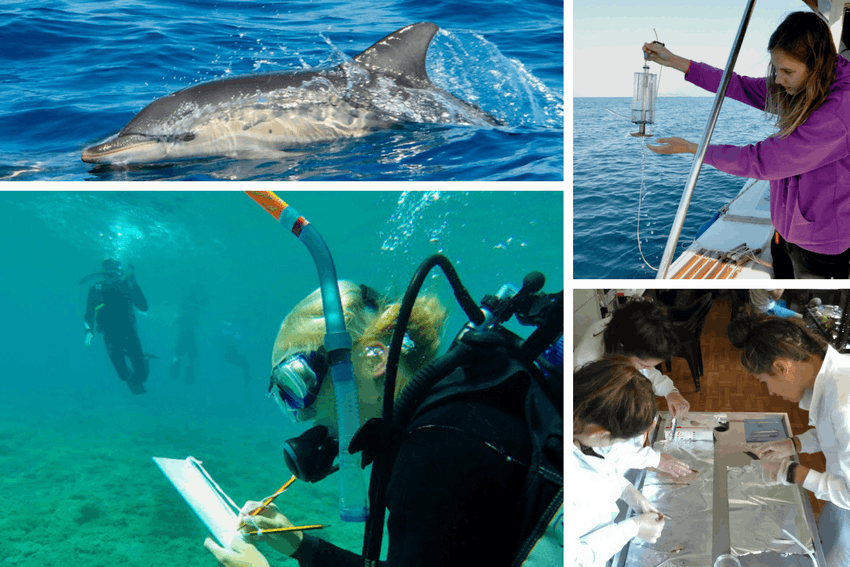
4. Can you provide some specific examples of internship activities?
Yes, no problem!
Aegean Marine Conservation internship
An important focus of this internship includes mapping the protected seagrass meadows, as they are reducing at an alarming rate. Posidonia Oceanica seagrass of the Mediterranean is believed to be the oldest living organism on Earth and it can be over 100,000 years old! It’s important because seagrass is key for fisheries productivity and stabilization of the ocean floor. The eastern Aegean still supports extensive meadows but they have been damaged or destroyed in many other areas. Interns can assist with different techniques to help with this mapping, including kayak and boat based mapping. Various methods and equipment includes using drone imaging, underwater transects and satellite mapping. We combine the results to create maps of seagrass along the seafloor, that are as comprehensive as possible.
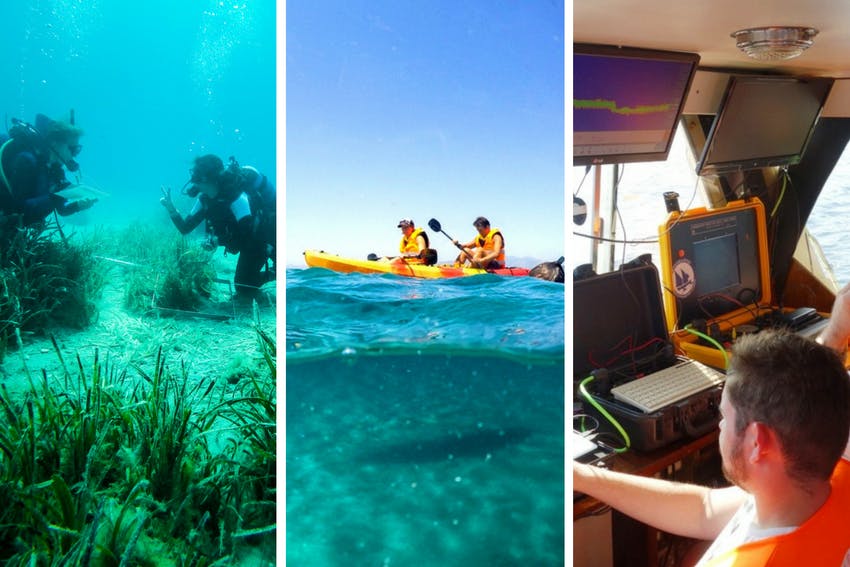
Marine Mammals & Sea Turtle Conservation
The marine mammal team is one of the largest and accordingly has many popular ongoing projects that interns assist with. Boat-based surveys are conducted to monitor dolphin and whale distributions, behaviour, and abundance. This data is then used to analyse the impact of anthropogenic factors over time. The stranding team also responds to injured mammals that require first aid attention. Ideally, we attempt to readapt the animal to its environment after being stranded or hurt. If mammals are stranded and consequently pass away, further necropsy analysis is conducted to ensure that the cause of death is determined. Eco-navigation team members visit nearby ports on a daily basis to speak with recreational sailors and tourists, to create awareness. They’re encouraged to report dolphin and other marine mammal sightings during their time on the island. This is a “citizen science initiative” that relies on the help of the public to get data that would otherwise be missed!
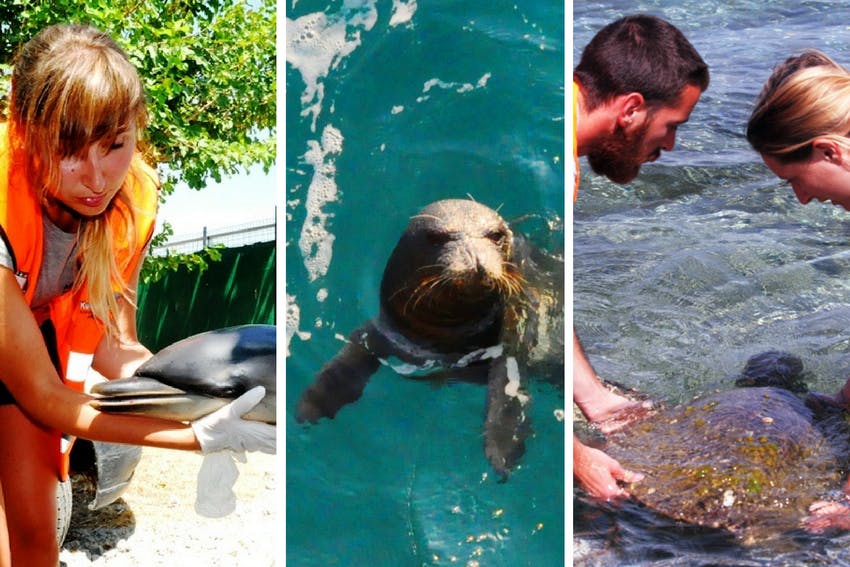
Terrestrial Conservation
Species that are endemic to Samos Island, such as the Mediterranean Chameleon and the Golden Jackal, are studied by interns on this program. They use transect data to compare habitats and learn more about the type of environments that chameleons prefer. This is done to try and estimate the density of the populations. Interns may also perform acoustic surveys and use camera traps to observe jackal behaviour, determine population numbers, and examine how they are using the area. Research also focuses on monitoring bird populations in wetlands and other important habitats, as the Eastern Aegean islands are key migratory routes for a large number of protected and rare bird species. The goal of these activities is to send biodiversity and abundance data to governmental organisations, with the aim of improving conservation status of important habitats.
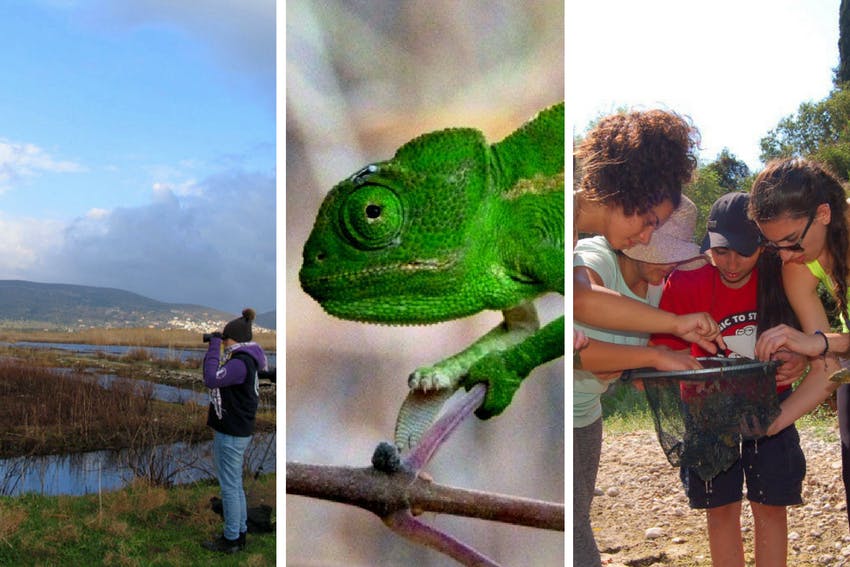
Laboratory Research & Microplastics
The major projects in the labs are focused on microplastics, although analysis can also be focused on general water and soil quality. Microscopic plastic debris is often inadvertently (or unavoidably) ingested by marine and terrestrial species. We analyse gastrointestinal tracts of stranded dolphins, sea turtles and fish to test for microplastic content. Additional research looks at the plastic content in surface waters and sediment samples. Basically, we want to know how well plastics travel up the food chain here in the Aegean.
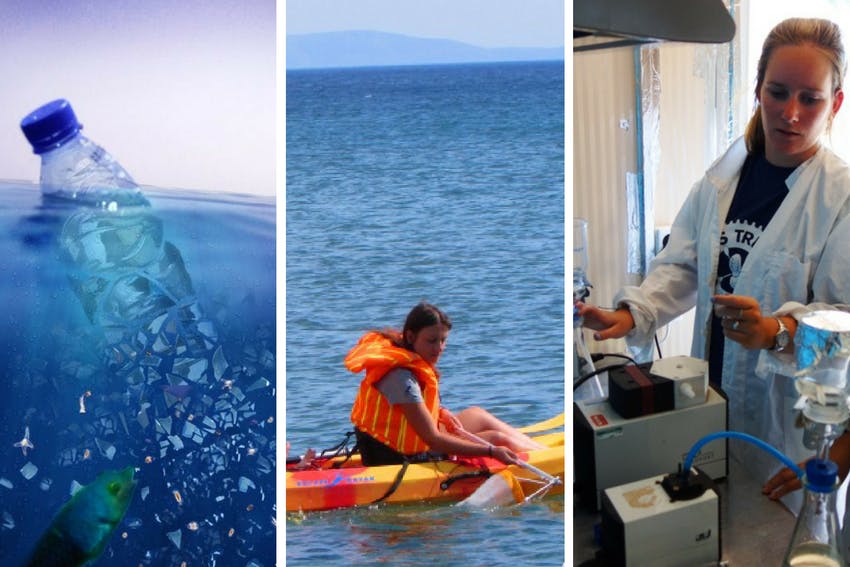
These are a few examples… we also offer internships in Environmental Law, GIS Mapping, Sustainable Aquaculture, and Media, Communications & Public Relations!
5. Can interns get involved in other activities outside of their chosen internship field?
Absolutely! There are many ways to approach conservation and it’s important for people to gain a holistic understanding of issues, to see how efforts from diverse fields come together to achieve common goals. Regardless of which internship program you join, every intern is granted the opportunity to explore other areas of fieldwork that are of interest. For example, all interns in Greece are welcome to join on-board boat surveys to monitor marine mammals, snorkel along the seabed on seagrass transects, or to assist in late-night chameleon surveys. Talking to people from different backgrounds, who have studied different disciplines, is an important aspect of professional growth. Learning how to collaborate together on various projects is an invaluable experience for future work.
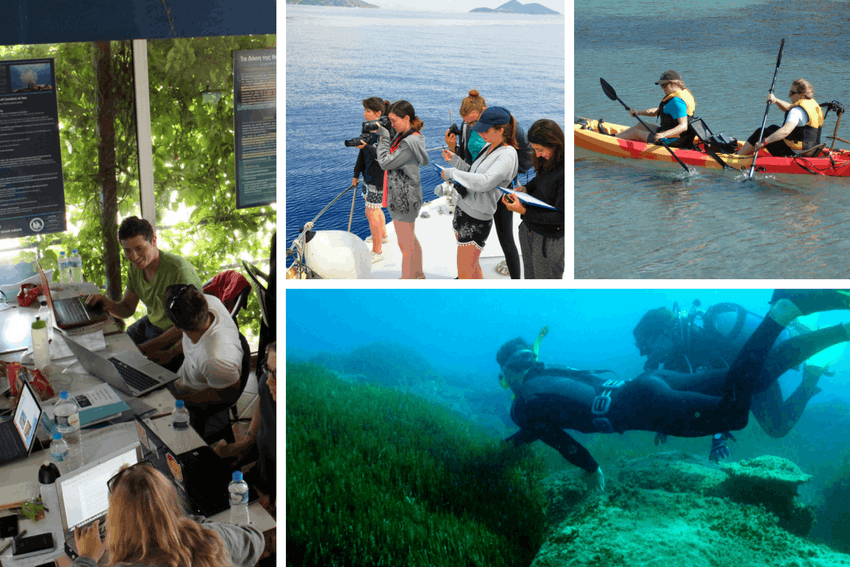
6. Describe the team in Greece and what makes it so special.
We have a wonderfully diverse Research Group, which is made up of talented and passionate people from all over the world. All projects are run by small teams, which allow interns to control the direction of their own research and gain hands-on experience. Teams are also inter-disciplinary, so there is great cooperation and learning cross-over. Supervisors for each area of research are always happy to help, give advice and guide you along the way.
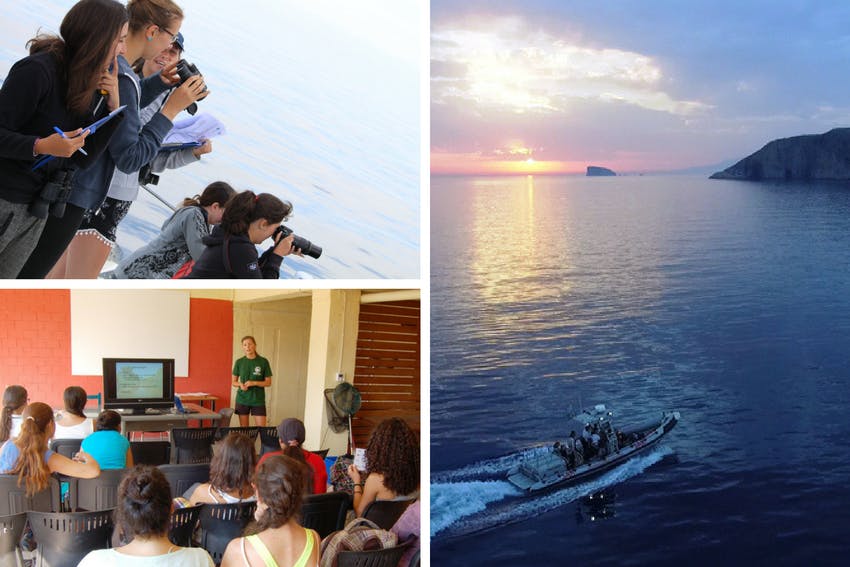
7. What items should definitely be on a person’s “pack list” for an internship in Greece?
If you’re coming to do marine conservation work – such as the Aegean Marine Conservation internship – and you’re a certified diver, then it’s essential to bring your own wetsuit, mask, snorkel and fins. (Diving socks/boots and gloves are recommended during the winter months). Apart from that, we recommend that you check the check what the expected temperatures will be for the time of year that you’re visiting. Greece can be cold in the winter and warm clothes are necessary during Autumn and Winter. Our program is really fun and social, so it’s a great idea to bring games and activities for hanging out in your spare time… movies, cards, etc. Binoculars and a good camera are always recommended!
8. How can interns spend their weekends in Samos and what activities are a “must do”?
In ancient times, Samos was one of the most important cities in the world. If you love history, then you’ll really enjoy exploring the ancient structures which remain on the island. The town also has excellent cafes, shops and a typical tourism scene. It’s not uncommon for interns to arrange weekend excursions together. Greek Lessons are provided to interns during their stay, at no additional cost, and the program base also has a diving center available. Long-term participants (who spend at least 3 months on the program) are welcome to speak to the local staff about discounted diving certification. These opportunities provide the added value of boosting your resume further with some local language skills and environmental-focused diving training. Besides the excellent local attractions and natural beauty, there are Greek Islands further afield to discover, if you budget for more travel outside of Samos Island.
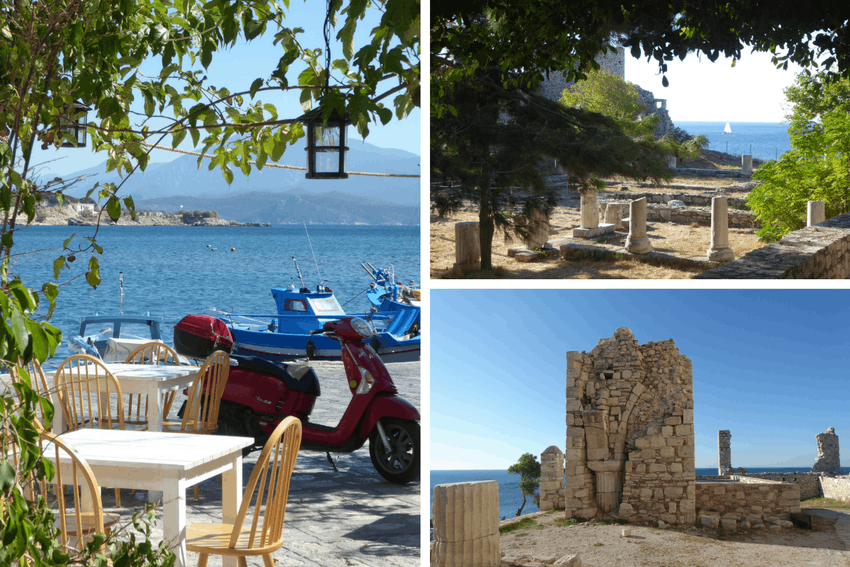
9. What is the accommodation like for interns?
Interns are always accommodated very close to the research base - either at the base itself, in shared dormitories, or within very close walking distance to the base. The main accommodation site that interns can expect to stay at is located just outside of Pythagorio. The building is situated just a few steps away from the beach, with a beautiful view facing the coast of Turkey and the national park of the Dilek peninsula. This base houses offices with a small library and a presentation area, a small lab, dormitory style rooms for accommodation, and a kitchen. Wifi is available (but the speed can be slow during really busy periods). Accommodation is basic but it’s comfortable and well-suited to its purpose. Depending on the nature of the projects that interns may assist with during their stay, they may occasionally spend time at other program bases on the surrounding islands of Ikaria, Lipsi and Leros.
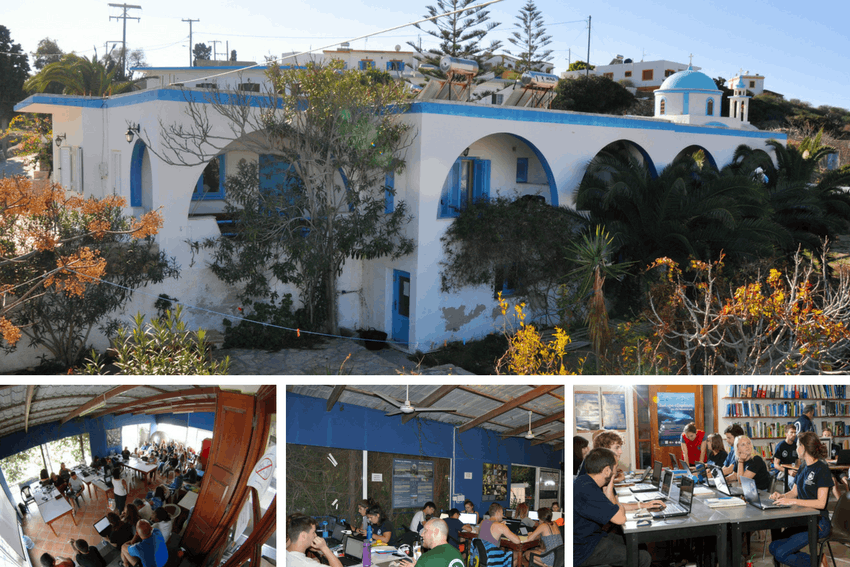
Sign me up! How can I start planning my internship in Greece?
Internships in Greece have two start dates available every month (usually the first and third Monday). Opportunities are flexible and there’s something for everyone! It can be challenging to take the first step, but once that decision has been made, the experience only gets better.
-
Apply online first. The application process is non-obligatory and free.
-
After applying, you’ll receive more details on how to confirm your internship placement.
-
To confirm, you’ll register online after your application has been accepted. This means taking care of the US$499 deposit, which enables us to provide services and pre-departure support. Greece internship fees can be reviewed online.
-
Once you’re registered, the adventure begins! Intern Abroad HQ will support you with prepping for your trip… and we will look forward to seeing you in Greece!